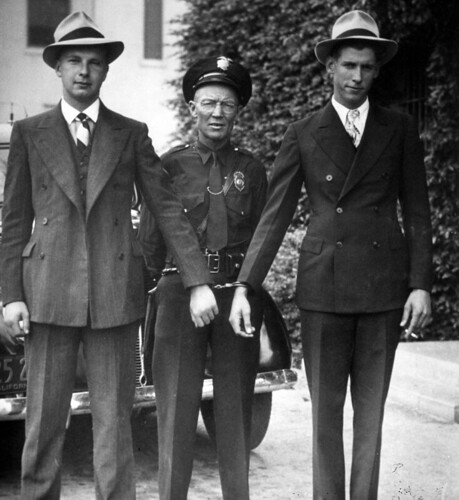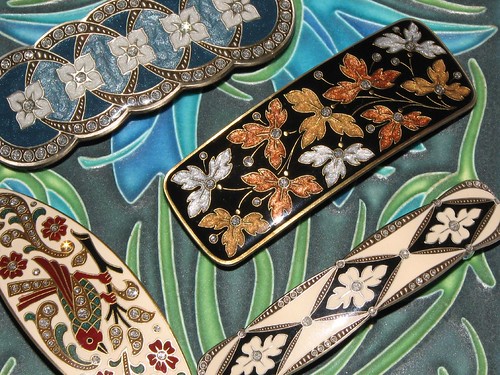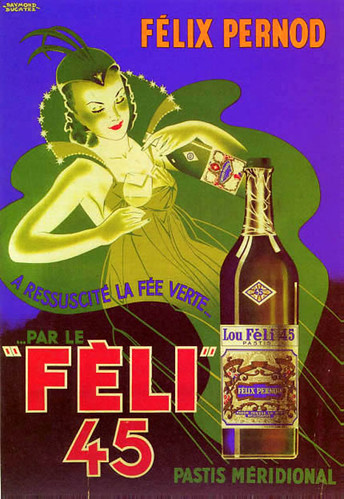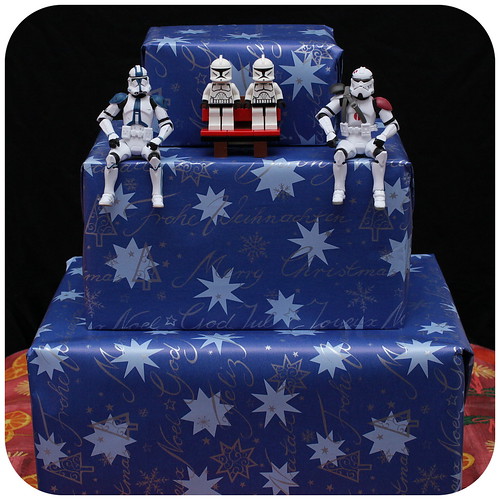Such works featured Carroll’s specialty: coining blends and nonce words. We take a look at 10 of our favorites here.
boojum
“But oh, beamish nephew, beware of the day,
If your Snark be a Boojum! For then
You will softly and suddenly vanish away,
And never be met with again!”
Lewis Carroll, The Hunting of the Snark, 1876
The boojum is “a particularly dangerous variety of ‘snark,’” an imaginary creature of Carroll’s invention. The word boojum has inspired the naming of everything from “a species of tree. . .native to Baja California, Mexico” (found in 1922 by plant explorer Godfrey Sykes, who proclaimed, “It must be a boojum!”); to a supersonic cruise missile that “was determined to be too ambitious a project. . .and was canceled in 1951”; to “a geometric pattern sometimes observed on the surface of superfluid helium-3,” as named by physicist David Mermin in 1976.
chortle
“He chortled in his joy.”
Lewis Carroll, Through the Looking-Glass, 1871
To chortle means “to exclaim exultingly, with a noisy chuckle.” According to the Oxford English Dictionary (OED), Carroll coined the word as a blend of chuckle and snort.
frabjous
“‘O frabjous day!’ rejoiced Emma Dean, using her bath towel as a scarf and performing a weird dance about the room.”
Jessie Graham Flower, Grace Harlowe’s Return to Overton Campus, 1915
Frabjous means “great, wonderful, fabulous,” and is a blend of either fabulous and joyous, or fair and joyous. “O frabjous day! Callooh! Callay!” cries the narrator of The Jabberwocky upon learning that the Jabberwock has been slain.
galumph
“I struggle to keep up on an particularly cold winter evening as I galumph my way across rough downland in pursuit of a tour guide.”
Ian Vince, “Stonehenge Landscape Can Still Surprise with Its Stunning Vistas,” The Telegraph, January 14, 2010
Galumph means “to move heavily and clumsily,” and is a blend of gallop and triumph.
jabberwocky
“In theory, the pledge could do most of the same work if we had children say it in Anglo-Saxon or Arapaho, or if we replaced it with the lyrics to ‘Zip-a-Dee-Doo-Dah.’ They’re going to turn the words into jabberwocky anyway.”
Geoff Nunberg, “I Pledge Allegiance to Linguistic Obfuscation,” NPR, March 30, 2010
The Jabberwocky is “a nonsensical poem that appears in Through the Looking-Glass by Lewis Carroll,” while the Jabberwock is “a fantastical dreaded monster with flaming eyes who is depicted” in the poem. Regarding the word itself, according to Carroll:
The Anglo-Saxon word ‘wocer’ or ‘wocor’ signifies ‘offspring’ or ‘fruit’. Taking ‘jabber’ in its ordinary acceptation of ‘excited and voluble discussion.’
Jabberwocky came to mean “nonsensical speech or writing” around 1908, says the OED.
mimsy
“I mean, their hair looks like it was designed on a Spirograph in the dark, then carelessly flopped on to them from atop a rickety step ladder, while their fans are all exactly the kind of mimsy mugginses who ‘Instagram’ pictures of wheelie bins to stick on their Tumblr, because, you know, it’s properly, like, photography, yeah?”
Gareth Aveyard, “This Week’s New Singles,” The Guardian, January 6, 2012
Mimsy was coined by Lewis Carroll in 1855 as a blend of miserable and flimsy. According to the OED, by 1880 mimsy also came to mean, in British English, “prim; careful; affected; feeble, weak, lightweight.” Mim is a much older word meaning “primly silent,” either imitative of the pursing up of the mouth, or coming from the Scottish Gaelic min, “delicate, meek.”
portmanteau word
“Portmanteau words are now a staple of the magazine competition, and amid the waste of failed invention, every so often one meets a need: smog, stagflation, chocoholic. I don’t know how we ever did without ‘metrosexual’, coined by my friend Mark Simpson.”
Philip Hensher, “Sarah Palin’s Struggle with the English Language,” The Telegraph, July 21, 2010
A portmanteau word is “a word formed by merging the sounds and meanings of two different words.” A portmanteau is “a case used in journeying for containing clothing,” and comes from the French porter, “to carry,” plus manteau, “cloak.”
Carroll coined portmanteau word in 1882 based on the idea of “two meanings packed up into one word,” says the Online Etymology Dictionary.
slithy
“Hearing these slithy and suggestive movements, I declined to remain any longer ignorant of their meaning.”
Ernest Raymond, Tell England: A Study in Generation, 1922
In 1855, Carroll combined slimy and lithe to form this nonce word. However, slithy as a variation of sleathy, “slovenly, careless,” has been around since 1622, says the OED.
snark
“The Snark was one of that strange man’s imaginary animals, but when novelist Heidi Julavitz used the word to describe unpleasantly critical book reviewers in her indifferently researched 2005 McSweeney’s magazine article, the word gained, as they say, ‘traction.’”
Bob Hoover, “Hunting Snarks with a Pop Gun,” Pittsburgh Post-Gazette, January 18, 2009
Snark referring to “an imaginary animal” was coined by Carroll in 1876 in his poem, The Hunting of the Snark, according to the Online Etymology Dictionary. In the 1950s, snark was the “name of a type of U.S. cruise missile and in 1980s of a type of sailboat.”
The word snark also has the meaning of “to snore; to snort,” which originated about 10 years before Carroll’s imaginary animal, according to the OED. This gave rise to snarky, “rudely sarcastic or disrespectful; snide,” or “irritable or short-tempered; irascible,” around 1906, which gives us snark‘s modern meaning of “snide remarks.”
vorpal
“Because, really, there’s nothing more grandiose and theatrical than the vorpal blade. It’s the weapon of dueling gentlemen and swashbuckling adventurers, of knights in armor and the horse lords of Rohan.”
Daniel Engber, “Nerd Violence,” Slate, January 3, 2011
Vorpal meaning “sharp or deadly” was coined by Carroll in 1871. In the role-playing game Dungeons and Dragons, the vorpal sword is a sword “capable of decapitation, specifically through magical means,” which aligns with the plot of The Jabberwocky:
One, two! One, two! And through and through
The vorpal blade went snicker-snack!
He left it dead, and with its head
He went galumphing back.
![[ T ] John Tenniel - Alice Through the Looking-Glass (1871)](http://farm6.staticflickr.com/5212/5485576189_14061e9d8b.jpg)






